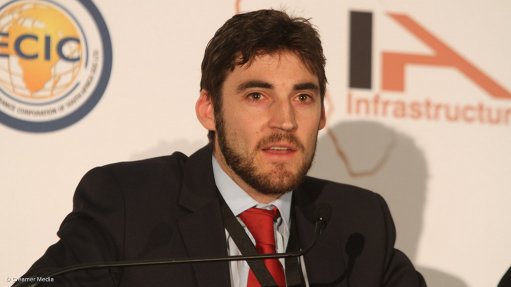
Frost & Sullivan ICT programme manager Gareth Mellon
Photo by: Duane Daws
It is increasingly widely accepted that deploying information and communication technology (ICT) infrastructure will bring about a surge in economic growth across Africa.
However, the sourcing of billions of dollars required to deliver universal coverage was up for debate at the Infrastructure Africa conference on Wednesday.
Increasingly, the public sector, realising the socioeconomic benefits of ICT, was backing the development of the industry, but, with the attractiveness of the business case for private sector investment in the sector diminishing, partnership and collaboration could be key to connecting Africa’s citizens to the Internet.
Speaking at the conference, in Sandton, Frost & Sullivan ICT programme manager Gareth Mellon explained that, historically, public sector and developmental institutional investments into telecommunications infrastructure had been sidelined in favour of more pressing infrastructure developments, leaving the deployment of telecommunications to the private sector.
This was changing, as the public sector was increasingly relying on ICT to bolster economic growth, bring marginalised citizens into the mainstream economy and boost the peripheral benefits in health, banking and education, besides other, that could be achieved by equipping Africans with a connected mobile device.
Flexenclosure commercial director Henri Zietsman added that, in addition to gross domestic product growth, every 10% increase in broadband penetration across Africa could deliver a 4.5% boost in productivity.
However, with an estimated minimum $100-billion required to roll out the basic infrastructure needed for ICT services in sub-Saharan Africa, which currently had less than 10% broadband penetration, it was clear that neither the private sector nor the public sector could close the infrastructure gap alone.
“We need to question how the funds are invested,” said Alcatel-Lucent Africa VP Daniel Jaeger, pointing out that the private sector would likely continue investing the bulk of the capital, but with increasing public sector involvement.
“Nobody can do it alone; you need to partner,” he said.